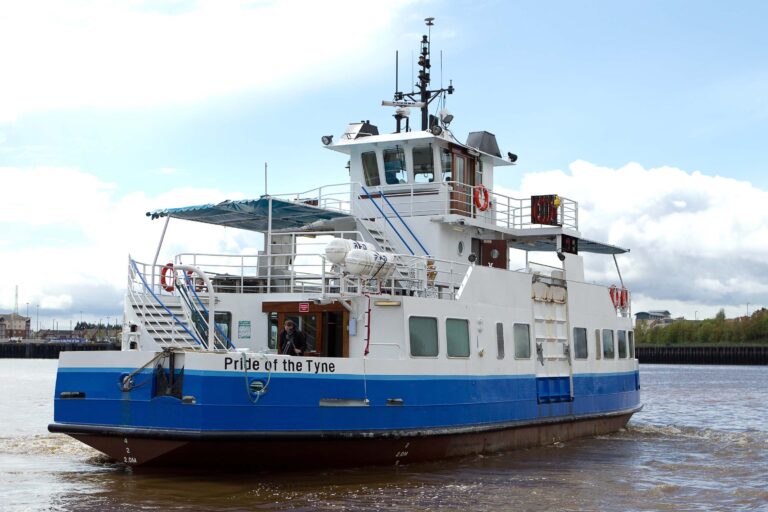Marine engineering and propulsion specialist Royston has secured Government funding for a collaborative project to examine the potential of new technologies to reduce the carbon footprint of river ferry services.
The move will see the UK-based firm working in local partnership with Newcastle University and ferry operator Nexus to look at ways to decarbonise the operations of the cross-Tyne Shields Ferry service, which transports 500,000 passengers annually across the River Tyne between North Shields and South Shields.
Specifically, the CLEANFERRY project aims to quantify the carbon footprint of the ferries’ existing propulsion systems and assess the viability and cost benefits of retrofitting or upgrading these with advanced technology to deliver efficiency savings, lower carbon emissions and improve fuel consumption.
The project will combine the in-service Electronic Fuel Monitoring System (EFMS) capabilities of Royston with Newcastle University’s marine research expertise and the vessel operational and public service experience of ferry operator, Nexus.
CLEANFERRY is part of the Government’s wider Clean Maritime Demonstration Competition, funded by the Department for Transport and delivered in partnership with Innovate UK, with a £20m package, designed to position the UK at the forefront of green shipbuilding and maritime technology. This is also supporting 55 projects across the UK including initiatives in Scotland, Northern Ireland as well as across England.
A key aim is to support the research, design and development of zero emission technology and infrastructure solutions for maritime and to accelerate decarbonisation in the sector.
In the North East of England, the Government has identified an emerging cluster of innovation around zero emissions technology for the transport and energy sectors supported by skills and expertise that stems from the region’s strong links to marine academia and industrial heritage.
The scope of work will see the installation of a state-of-the-art monitoring system to provide baseline emissions’ readings in line with the UK’s clean maritime plan – which identifies ways to tackle air pollutants and greenhouse gas emissions.
It will also review the feasibility and impact of compatible technical and operational solutions to cut harmful greenhouse gas emissions. This will be followed by the creation of a route map for a follow-up technology solution.
Bijan Younessi, technical manager at Royston, said: “We are delighted to have secured funding and look forward to involvement with the university and Nexus on this important project. Fleet operators across the globe are investing in advanced digital solutions to boost vessel performance to help decarbonise the marine industry.
“This is a unique opportunity to combine relevant experience and knowledge to transform the carbon footprint of the Tyne ferry service and capture data that can be shared with other similar services across the country, maximising the impact of our work.”
Technologies such as enginei are advanced fuel monitoring systems that can be installed as part of a suite of digital marine technologies, helping fleet owners and operators to improve the operational efficiency and energy management of their vessels.
It incorporates on board flowmeter and sensor technology, which provides the ability to acquire comprehensive real time engine and vessel performance measurements beyond the usual RPM, GPS and fuel inputs to take in a wide range of other engine control unit outputs.
The data is displayed live through a touch screen bridge display and transmitted remotely to a web portal where the interface enables the rapid production of intuitive online reports and trending graphs, as well as providing alerts and map dashboard tracking with weather overlays, showing a detailed operational profile for a vessel.


